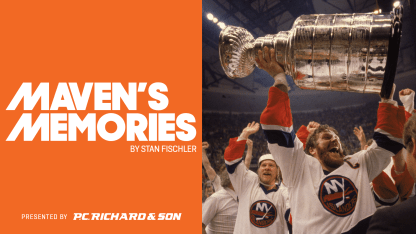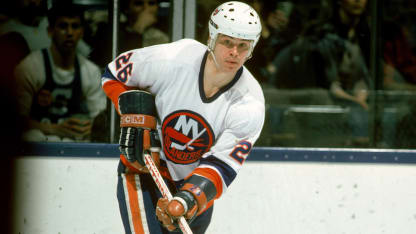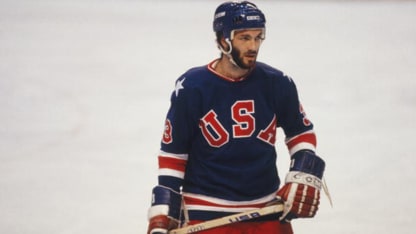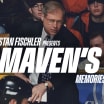While just about everyone knows the details of arguably the most decisive playoff deal of all-time, some nuances are worth noting here.
For starters, the two-for-one exchange was unexpected and -- at least at first -- not entirely welcome. In fact, just before the Trade Deadline, Torrey, himself, stated, "We're settled now."
But they weren't and Bow Tie wasn't. No question, they needed a center to take the pressure off Trottier. "As a rule," said Torrey's aide Jim Devellano,"we would not trade for an older player. Plus, the guys that Los Angeles wanted were in their primes."
That was the obstacle. Right wing Billy Harris and defenseman Dave Lewis were both competent and fan favorites. Teammates, such as Bob Bourne, were very fond of Harry and Davey. "When I heard about the deal," said Bourne, "it shook me."
Ah, but the final turning point was negotiated by Torrey with Goring becoming an Islander. And, as the bromide goes, the rest is history.
Or, translated to reality -- four consecutive Stanley Cups and 19 consecutive playoff series wins.
Yet it could safely be said, the dynastic accomplishments might never have been achieved without those five turning points that fully jelled.
It started with the new captain in September and concluded with the arrival of Goring in March.
"Getting Butch was the spark," Arbour concluded. "It finished off the product."






















